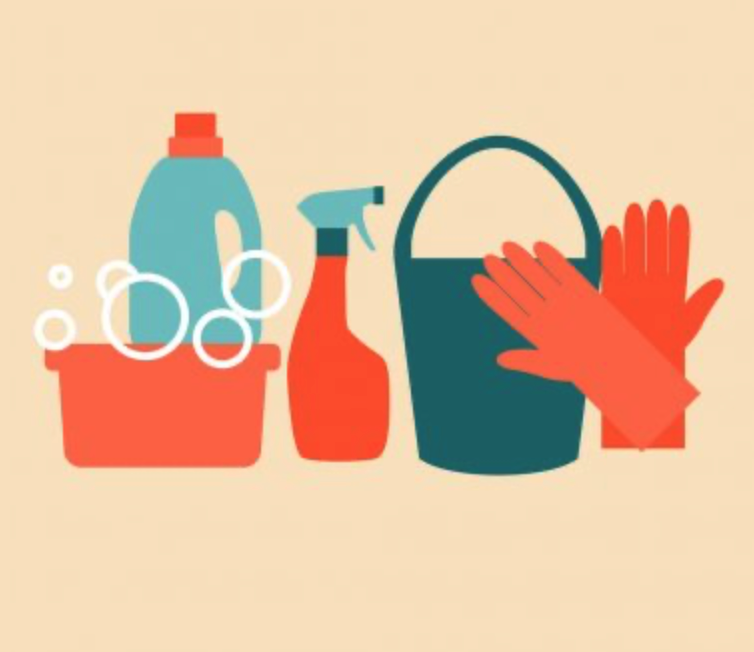Who is a domestic worker or house servant?
A domestic worker is a person (male/female) carrying on tasks such as cleaning, cooking, washing and ironing clothes, taking care of children, the elderly or sick members of the family, gardening, guarding the house, driving or taking care of household pets. These may work on full-time or part-time basis, may be employed by a single household or by multiple employers and may be residing with their employers or may be living in their residences.[1]
What is domestic violence?
Domestic violence is any act done by the perpetrator which harms or injures the safety or wellbeing of the victim physically or mentally. Domestic violence takes various forms such as sexual abuse, emotional abuse, economic abuse, Physical and psychological abuse.
What is the relationship between an employer and a domestic worker or house servant in relation to domestic violence?
The relationship that subsists between the employer and a domestic worker has been defined as a domestic relationship. In a domestic relationship, the victim of domestic violence may be employed by the perpetrator as domestic worker or house worker and the victim does or does not reside with the perpetrator. In a likely manner, the victim of domestic violence could be an employer who resides or lives apart from the perpetrator.
Can domestic workers or house servants be victims of domestic violence?
Yes, a victim of domestic violence is a person in a domestic relationship who suffers actual or threatened domestic violence, in this case, domestic workers fall under a domestic relationship.
What are the forms of domestic violence a domestic worker could be subjected to?
- Physical abuse; in which the employer assaults, causes bodily pain, harms or endangers the life of a domestic worker. This may take the form of pushing, kicking, slapping, biting and any other form of physical assault.
- The employer harasses the domestic worker to force him / her meet any unlawful demand of property. For example, it would constitute domestic violence if an employer forces a domestic worker to steal property or items for the employer’s benefit.
- Economic abuse; an employer depriving their domestic worker of financial resources to which the domestic worker is entitled. (Examples of this kind of abuse include, refusal to pay the worker’s salary or allowance, disposal of the worker’s household items without their consent, prohibiting use of basic necessities to which a domestic worker is entitled).
- Repeated insults, abuses, name-calling, it does not matter the language in which the insults or abuses are passed.
- Invasion of a domestic worker’s privacy, liberty. This may take the following forms;
- Sexual abuse of the domestic worker by the employer (Examples, include sexual assault, rape and other sexual acts that humiliate the worker[4].)
- A threat and intimidation to cause the above also amounts to domestic violence.
Note: All the above acts are prohibited by law and perpetrators who are found guilty could be sentenced to 2 years’ imprisonment or a fine of 48 Currency points (960,000 Ugx)
What you should do in case you experience acts that amount to domestic violence?
Any domestic worker who experiences domestic violence should report or make a complaint to the LC1 of an area where the employer resides/ lives.[5]
Note:
- The Local Council 1 (LC1) of the areas have been given powers to handle domestic violence cases.
- A domestic worker who is a victim of domestic violence does not need any document or money to lodge a complaint of domestic violence to the area LC1.
- A domestic worker who is a victim of domestic violence does not need a reference letter to lodge a complaint of domestic violence to the area LC1.
What are the likely punishments that could be given to a perpetrator / employer who has committed acts of Domestic violence?
- Apology to the victim.
- Caution.
- Compensation.
- Community Service.
- A fine to be payable to the victim.
- Reconciliation.
What if the employer (perpetrator) continues to commit domestic violence against the Domestic worker?
The area LC1 will prepare for the victim a referral letter to the Police (this could be a police outpost or a police station) and to the Magistrates Court.
Where does JCU come in to support / help victims of domestic violence?
- Legal advice on whether the act constitutes domestic violence- This is through her toll free line.
- Advice on where to report the abuses.
- Follow up of reported cases at police.
Important facts you need to know about domestic violence
- In Uganda, issues of domestic violence between an employer and a domestic worker are now regulated by the Domestic Violence Act, 2010.
- The Domestic Violence Act, 2010 provides for protection of victims of domestic violence.
- Domestic violence can be perpetrated or committed against a domestic worker who does or does not reside with his or her employer.
- An employer could be a victim of domestic violence; a domestic worker can perpetrate or commit acts of domestic violence against his / her employer.
[1] 1996-2021 International Labour Organisation (ILO)
[2] Section 18 of the HIV/ AIDS Prevention and Control Act, 2014 Mandates Medical practitioners to disclose the results of the HIV/AIDS test to ONLY the person tested.
[3] Article 27 of the Constitution of the Republic of Uganda, 1995, prohibits unlawful search of the person or the person’s property.
[4] We could make an exclusion of rape from this kind of sexual abuse. Rape carries a punishment that is graver.
[5] Justice Centres encourages that Victims first report domestic violence cases to their area LCs.











